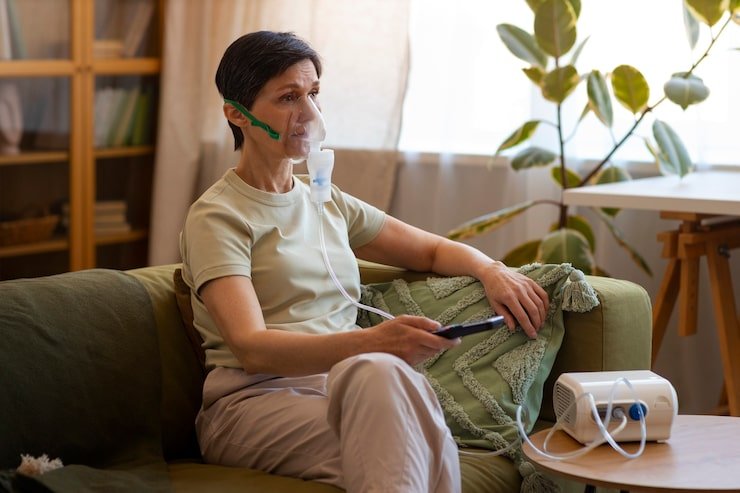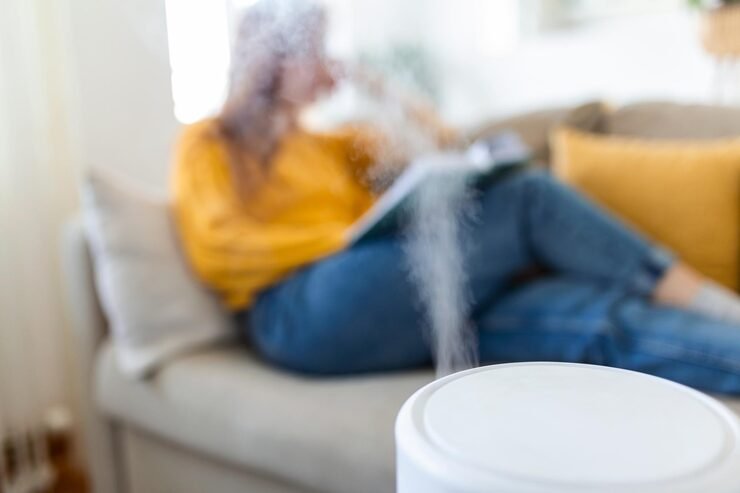What Air Quality Tests Really Reveal (And Why It Matters)
- admin323029
- Blog

When you think about home safety, you probably imagine things like strong locks, working smoke detectors, and up-to-date wiring. But have you ever stopped to think about the air you’re breathing every day? The truth is, what’s floating around your home could be impacting your health far more than you realize. This is where air quality testing becomes essential.
Indoor air quality can be affected by pollutants you can’t see or smell. From mold spores and allergens to volatile organic compounds (VOCs) and radon gas, the air inside your home can hide serious threats. If you’re a homeowner in Massachusetts or New Hampshire, where tightly sealed homes are common during cold months, poor ventilation can make the problem even worse. Knowing what air quality tests really reveal—and why that matters—is the first step toward protecting your home and family.
Why Indoor Air Quality Is Often Overlooked
Most people don’t think about indoor air unless something smells off or someone in the home starts experiencing allergies. But the absence of odor doesn’t mean the air is clean. According to the EPA, indoor air pollution can be two to five times worse than what’s outside.
Unlike other home issues, poor indoor air quality doesn’t always have obvious signs. You could be breathing in low levels of harmful gases or mold without even realizing it. That’s why routine air quality testing is critical, especially for families with children, seniors, or anyone with respiratory conditions.
H2: What Air Quality Tests Really Reveal About Your Home
A professional air quality test provides a comprehensive snapshot of what’s in the air you breathe. These tests are far more detailed than a DIY kit and can uncover the following common problems:
1. Mold Spores
Even if you don’t see visible mold, spores could be present in your air. This is especially common in homes with past water damage or poor ventilation. Testing can reveal both the presence and type of mold, helping you decide if remediation is needed.
2. Volatile Organic Compounds (VOCs)
VOCs are gases emitted from household items like paint, furniture, flooring, and cleaning products. Long-term exposure to VOCs can lead to health issues ranging from headaches to liver damage. If you’ve recently renovated or moved into a new home in Massachusetts or New Hampshire, a VOC test is essential.
3. Radon Gas
Radon is an odorless, colorless gas that seeps from the ground into homes—particularly basements. Long-term exposure is a leading cause of lung cancer. Radon levels tend to be higher in New Hampshire due to the region’s natural geology.
4. Carbon Monoxide and Carbon Dioxide
Air quality tests can detect dangerous levels of carbon monoxide, often caused by faulty furnaces or appliances. They also measure carbon dioxide, which can indicate poor ventilation and stale air.
5. Allergens and Particulate Matter
Dust, pollen, pet dander, and fine particles can all trigger allergies or asthma. Testing identifies which allergens are present and in what quantity, helping guide cleaning or HVAC improvements.
When Should You Get an Air Quality Test?
You don’t need to wait for a problem to arise before taking action. Consider scheduling a test if:
-
You’ve recently completed home renovations or installed new furniture
-
You or your family experience persistent allergies, headaches, or fatigue
-
You notice musty odors or signs of dampness in your basement or attic
-
You’re buying or selling a home
-
You live in older housing common in parts of Massachusetts and New Hampshire
-
You use wood-burning stoves, gas appliances, or an attached garage
Proactive testing ensures peace of mind and helps you make informed decisions about your home’s environment.
What Happens During a Professional Air Quality Test?
A licensed technician will use specialized tools to gather air and surface samples. These might include:
-
Air sampling for mold and particulate matter
-
VOC meters to detect chemical emissions
-
Radon detectors to measure gas levels over time
-
Humidity monitors to assess conditions for mold growth
Once complete, samples are sent to a certified lab. Within a few days, you’ll receive a detailed report outlining what was found, how serious the levels are, and recommended steps if intervention is needed.
Why It Matters for Your Health and Safety
Ignoring indoor air quality can lead to long-term health consequences. Mold exposure may cause respiratory issues, skin irritation, or immune system problems. VOCs can cause chronic headaches, dizziness, or organ damage. Radon is a silent killer that claims thousands of lives each year.
In New Hampshire, where radon risks are especially high, air quality testing can literally save lives. In humid parts of Massachusetts, testing can reveal whether mold is lurking behind the walls. Without testing, you’re left guessing.
Beyond health, poor indoor air can reduce your home’s value. If you plan to sell, being able to present a clean air quality test report adds credibility and peace of mind for buyers.
What to Do With the Results
If your test results indicate issues, you can take corrective steps like:
-
Hiring a mold remediation company
-
Installing air purifiers or improving ventilation
-
Sealing foundation cracks to reduce radon entry
-
Switching to low-VOC household products
-
Servicing or upgrading HVAC systems
The key is not just knowing what’s wrong, but being able to fix it efficiently. Testing empowers you to act before problems get worse—or more expensive.
Final Thoughts
The air in your home should help you feel relaxed, not sick. Air quality testing reveals what your eyes and nose can’t detect. It’s an easy, affordable way to protect your health, your family, and your investment. For homeowners in Massachusetts and New Hampshire, where seasonal changes and older housing stock can impact indoor air, testing isn’t just a luxury—it’s a necessity.
Don’t wait for health issues to emerge. Schedule your professional air quality test today and take control of the air you breathe.
FAQs About What Air Quality Tests Reveal
1. What does an air quality test measure?
An air quality test measures indoor pollutants like mold, VOCs, radon, carbon monoxide, and allergens. It gives a clear view of what you’re breathing at home.
2. How accurate are air quality tests?
Professional air quality testing is highly accurate, using lab analysis and calibrated tools. It’s far more reliable than over-the-counter or DIY test kits.
3. Do I need an air quality test if my home smells fine?
Yes. Many harmful pollutants like radon and VOCs are odorless. A clean smell doesn’t guarantee clean air. That’s why routine air quality testing is important.
4. How often should I test the air in my home?
It’s recommended to conduct air quality testing every 2–3 years, or sooner if you’ve renovated, experienced water damage, or noticed unusual health symptoms.
5. Is air quality testing worth it in Massachusetts and New Hampshire?
Absolutely. These regions have higher risks of radon and mold due to climate and construction styles. Air quality testing ensures a safe indoor environment.
Are you worried about the cleanliness of your space?
Let us help you! Cleaning services are our specialty, and we offer a complete range of cleaning and maintenance services. Get a free estimate!




